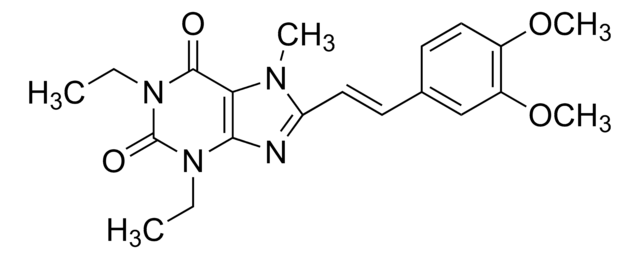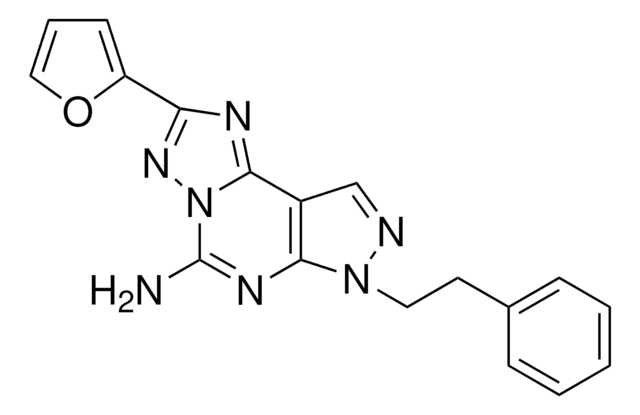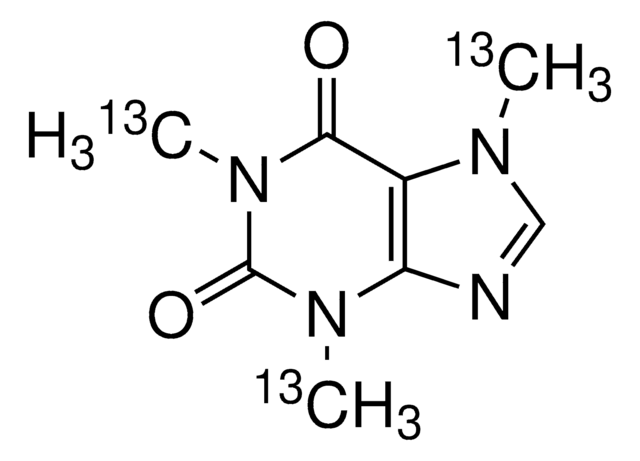C197
8-(3-Chlorostyryl)caffeine
≥98% (HPLC), solid
Synonym(s):
1,3,7-Trimethyl-8-(3-chlorostyryl)xanthine, CSC
About This Item
Recommended Products
Assay
≥98% (HPLC)
form
solid
color
white
solubility
DMSO: >5 mg/mL
storage temp.
−20°C
SMILES string
[H]\C(=C(\[H])c1nc2C(=O)N(C)C(=O)N(C)c2n1C)c3cccc(Cl)c3
InChI
1S/C16H15ClN4O2/c1-19-12(8-7-10-5-4-6-11(17)9-10)18-13-14(19)20(2)16(23)21(3)15(13)22/h4-9H,1-3H3/b8-7+
InChI key
MHYRUZOJQQLLQS-BQYQJAHWSA-N
Gene Information
human ... ADORA2A(135)
mouse ... Maob(109731)
rat ... Adora1(29290) , Adora2a(25369)
Application
- to study its effects on levodopa (L-DOPA)-induced dopamine (DA) release in rat striatum
- to study its effect on the nuclear factor κ-light-chain-enhancer of activated B cells (NF-κB) activity in macrophages
- to determine its effects on human umbilical vein endothelial cells (HUVECs)
Biochem/physiol Actions
Features and Benefits
Caution
Storage Class Code
11 - Combustible Solids
WGK
WGK 3
Flash Point(F)
Not applicable
Flash Point(C)
Not applicable
Personal Protective Equipment
Regulatory Listings
Regulatory Listings are mainly provided for chemical products. Only limited information can be provided here for non-chemical products. No entry means none of the components are listed. It is the user’s obligation to ensure the safe and legal use of the product.
JAN Code
C197-BULK:
C197-25MG:
C197-VAR:
C197-100MG:
Certificates of Analysis (COA)
Search for Certificates of Analysis (COA) by entering the products Lot/Batch Number. Lot and Batch Numbers can be found on a product’s label following the words ‘Lot’ or ‘Batch’.
Already Own This Product?
Find documentation for the products that you have recently purchased in the Document Library.
Our team of scientists has experience in all areas of research including Life Science, Material Science, Chemical Synthesis, Chromatography, Analytical and many others.
Contact Technical Service




